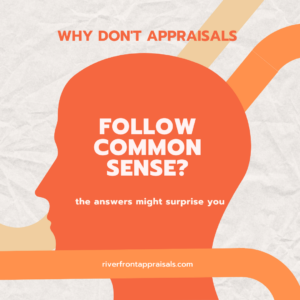
Property Taxes Just Went Up? We’ve Got You Covered!
It’s reassessment season for most folks in our area. Homeowners

So you listed your house, and in only three short days, you secured a buyer! Yay! The buyer was already pre-approved, so in just a few more days, the appraiser came, and in less than a week the appraisal was done. Wow, things were moving fast! But wait. You contracted with the purchaser to sell your home at $200,000, and the appraisal came back at $190,000. It’s disappointing. Frustrating. Confusing. Trust me, I’ve been there.
Last week, we discussed the most common options available to buyers and sellers when an appraisal comes back lower than contract price. In case you missed it, you can read it here.
However, if you have the time, before trying to renegotiate the deal, or scrapping it altogether, it can’t hurt to contact the appraiser. There’s no guarantee that the appraisal will be changed, but going about it in the right way will definitely increase your chances. We call this a reconsideration of value request. So read on for some helpful tips!
Know Your Role. Before anything, please remember that the appraiser is a highly qualified professional who does this thing called appraising for a living. And most likely you are not. Just remember that when communicating with the appraiser. Approach the topic carefully, respectfully, and humbly. This goes A LONG way with an appraiser.
Get a Copy. Don’t rely just on the bank’s word that the appraisal came back under contract price. See if you can get a copy of the report. If you’re the purchaser, that won’t be too hard; however, if you’re the seller, you’ll need to get a copy from the buyer.
Read Carefully. Make sure the appraiser hasn’t materially misrepresented your home. Is the square footage what you thought it should be? Are the bedrooms & bathrooms accurate? Did the appraiser list all of the improvements you’ve made in the last 10-15 years? This is a good starting place to point out errors, as some may actually impact value.
Challenge the Comps. Look through the comparable sales the appraiser used. They should all be located in or near your neighborhood, so you might have some insight into these homes that the appraiser didn’t have. Did Comp #2 sell in foreclosure and the appraiser missed it? That could be a huge oversight. Was Comp #1 inferior in overall condition but the appraiser called it similar? These are things that would be helpful for an appraiser to know.
Provide Alternate Sales. The best way to challenge an appraisal is to provide alternate sales. Maybe the appraiser missed a sale, or didn’t know a home just down the street closed two days ago. Either way, providing these sales could really help your case. If done right.
The sales you provide to the appraiser need to be as comparable or more comparable than the sales already in the report. What’s this mean? Imagine you have a 1,300 square foot home. The sales used in your appraisal ranged from 1,200 – 1,400 square feet. If the alternate sales you provide are all over 1,600 square feet, then it’s likely that the appraiser won’t even consider them. The appraiser needs to have a compelling reason to include alternate sales provided by the homeowner, Client, or Realtor. Don’t go out and just find the highest priced sale you could find. Also, if the sales the appraiser used all sold in the last three months, and you provide a 14-month old sale, then the appraiser will probably not use that sale.
When you provide alternate sales, make sure & include commentary that explains why your sales are more comparable to the subject property than the sales used by the appraiser.
Do Not Pressure. Try to communicate your findings and sales in a way that doesn’t say, “These sales support our contract price of $200,000.” An appraiser cannot be pressured to ‘hit’ a specific number. Remember, it’s called a Reconsideration of Value Request. You’re not asking the appraiser to change the report, but to reconsider the value. This is key.
Be Short & Sweet. Literally. The appraiser doesn’t have time to read your 20-page book on why your home is worth $200,000. Make a list of the items the appraiser missed, point out why the comps used were not the best, and describe the new sales you’re providing in a concise, yet helpful way. And be nice. I can’t stress this enough. Appraisers live in a world where everyone thinks they can do our job. If you approach this topic correctly, the appraiser will be much more likely to at least look at what you have to say. Plus, it’s just part of being a decent human being. Everyone enjoys it when people are nice to them. Don’t you?
Send it to the Bank. As we’ve mentioned before, an appraiser cannot be pressured to hit value. One way the Powers That Be try to keep this from happening, is that no one can discuss value with an appraiser except for the client (unless the client gives the green light). So once you have your reconsideration request filled out (see below), get it to the bank that ordered the appraisal, and they’ll pass it along to the appraiser. This keeps everything on the up & up and no one can be seen as influencing or being influenced. Unless the appraisal was prepared for you personally (i.e. private, non-lending appraisal), do not send the request directly to the appraiser.
Finally, if you do find yourself needing to request a reconsideration of value, feel free to use this free template, Reconsideration of Value Request, we created. You can easily fill it out and send it to your bank or mortgage company and they’ll make sure the appraiser gets it.
Helping homeowners navigate the appraisal process,
Ryan Bays, SRA, AI-RRS

It’s reassessment season for most folks in our area. Homeowners

I feel like we all need a laugh. How about

So this may be a slight break from the norm,
Riverfront Appraisals has been providing comprehensive valuations of residential properties to Western Kentucky and Southwestern Indiana since 2008.